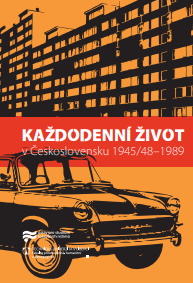(Ne)oficiální kulturní aktivity mládeže v Československu v období tzv. normalizace
(Un)official cultural youth activities in Czechoslovakia during so called normalization
Author(s): Miroslav Vaněk
Subject(s): Cultural history, Political history, Social history, Recent History (1900 till today), Post-War period (1950 - 1989), History of Communism
Published by: Ústav pro studium totalitních režimů
Keywords: Czechoslovakia; 20th century; communism; cultural activities; youth; normalization; political regime;
Summary/Abstract: The fall of the regime in 1989 was of course caused by many factors - external (western pressure, M. S. Gorbachev in the role of the General Secretary of the USSR) and internal (economics, environment, opposition). The coming of the new youth generation in the 1980s was also an important internal factor. After many years it was a generation not afflicted and traumatized by living through the events of 1968 (but also 1938 or 1948). The term “youth” did not acquire its new meaning, it was comprehended as a specific entity, but also something that is advisable to keep under control. Democratic, authoritative and totalitarian regimes boasted about their best intentions and care not only for children, but also for young people. Politicians accepted their existence, but at the same time drew the lines for their activities, strictly watched and organized by real adults. The Czechoslovak communist regime was perfectly aware of the potential “threat” of the free time. Till its fall and depending on the situation it tried in the name of so called “battle for juvenils” to hold back and fight the activities of youths. During the 1980s the regime was short-winded in its campaign and was forced to relieve the pressure somewhere. The youth took the opportunity and their new activities could be pointed out as the seeds of the new civil society. They themselves understood them as “freedom islands” that helped them survive the pre-revolution regime. Young environmentalists, punk fans, new wave fans (and rock fans in general), peace activists, young Christians in various groups and slowly forming student activities created a platform ready to support changes coming with the year 1989 and some of them really acted on it. The old regime was not dissolved by the juveniles, but they surely did contribute to the changes not only before 1989 but also after it.
Book: Každodenní život v Československu 1945/48-1989
- Page Range: 154-179
- Page Count: 26
- Publication Year: 2015
- Language: Czech
- Content File-PDF

